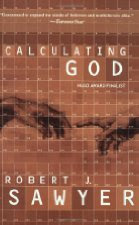 The Good an the Bad
The Good an the BadMonday, April 12, 2010
 The Good an the Bad
The Good an the Bad M2MS
M2MSMonday, April 05, 2010
Sunday, April 04, 2010
Wednesday, March 31, 2010
 If I Had Only Known You Better
If I Had Only Known You BetterTuesday, March 30, 2010
 Is God Self-Centered?
Is God Self-Centered?Tuesday, March 23, 2010
 Do Not Be Discouraged by Your Feeble Progress
Do Not Be Discouraged by Your Feeble ProgressSunday, March 21, 2010

Saturday, March 20, 2010
 M2MS
M2MSFriday, March 19, 2010
 M2MS
M2MS A Story of Personal Sacrifice
A Story of Personal SacrificeWednesday, March 17, 2010
Monday, March 15, 2010

Thursday, March 04, 2010

Monday, February 22, 2010
Friday, February 19, 2010

Friday, February 12, 2010
 M2MS
M2MSWednesday, February 10, 2010
 Calculating God
Calculating God M2MS
M2MSThursday, February 04, 2010
 We Are Like Sheep
We Are Like SheepWe took this photo as we drove through Jasper National Park in Alberta. A herd of mountain sheep had wandered onto the road to get their daily dose of salt. The Trans-Canada highway is the world's longest salt lick! The sheep were so absorbed with their desire for salt that they were completely oblivious to the danger that they had placed themselves in. They didn't even flinch when we blew our truck horn! As I reflected on this situation I was reminded of the words of the prophet Isaiah: "We all, like sheep, have gone astray, each of us has turned to his own way; and the LORD has laid on him the iniquity of us all. (Isaiah 53:6)
When we think about sheep, we get a warm, fuzzy feeling: white, fleecey, soft, cuddly animals that are fun to be with. But when the Bible compares us to sheep it’s really a spiritual insult. the prophet does not use the comparison in a positive way. Two observations emerge from this analogy
A. Like sheep we need to be rescued – we are lost.
Sheep are notoriously single-minded and at the same time unaware of their circumstances. Their minds are on the next clump of grass and not much else. They have been known to eat their way onto the edge of a steep cliff and fall off to their peril. Furthermore, when they are frightened they have a tendency to bolt off in any direction. As a result of these two tendencies, sheep are prone to get lost. Like them, we humans seem not to be much aware of the consequences of our choices.
We tried raising sheep on when we lived on a small property on Breadalbane Rd. We bought a sheep and named her Patty. I had this great idea. Sheep like grass and we have lots of it. Why not use Patty to keep our lawn cut. Put a collar on her and tethered her to a post. She would eat the grass in a spot for a few days and then I would move her to another stop on the lawn, eventually trimming all of the lawn. Problem was Patty only ate grass at the end of her tether. What we ended up with was a lawn with many 30 foot circles. Patty was not content to eat the grass provided for her but wanted the stuff beyond her reach. Like you and I, she was prone to wander.
We were created to live on our Creator. We were meant to feed on the LORD alone. But we take the deepest longings of our soul and focus them on something. If it’s anything or anyone else than God – that’s idolatry. And we will always end up hungry. We are replacing something else for God.
B. Like sheep we are helplessly lost.
A sheep can contribute nothing to its rescue. The shepherd has to do everything. This is traditionally called the doctrine of original sin. We are all born in sin that we inherit from our parents. Children are not born innocent and then we teach them to do wrong. And the doctrine of the total depravity of man teaches that we are utterly lost in our sin and can do nothing to rescue ourselves. Like sheep, we can’t even see our lostness and peril. Hebrews 3:13, warns against the callousness that results from sins deceitfulness. Sin has a deceptive effect on us: we can’t see our own sin; and further, sin has a hardening effect on us: we become insensitive to it.
Like sheep we are hopelessly and helplessly lost in our sin! It would not help to send a great teacher or example that we could follow to reform ourselves. The problem is not lack of information. Jesus said, God has sent the prophets and you killed them all. We must be saved by God’s grace. This is where the Prophet gives us hope. the Lord has provided for our rescue by giving a substitute lamb to be sacrificed in our place: "the LORD has laid on him the iniquity of us all." The shepherd becomes a sheep like us to die in our place and satisfy the justice of God. This is the good news of the Gospel of Christ.
Monday, February 01, 2010
Friday, January 22, 2010
Thursday, January 14, 2010
Tuesday, January 05, 2010
Monday, January 04, 2010
Saturday, January 02, 2010
Saturday, December 26, 2009
Wednesday, December 16, 2009
Thursday, December 10, 2009
Monday, December 07, 2009
Friday, December 04, 2009
Tuesday, December 01, 2009
Friday, November 27, 2009
 Disordered Loves
Disordered LovesWednesday, November 25, 2009
 Perfect Union
Perfect UnionTuesday, November 24, 2009
Friday, November 13, 2009
 Change Is Essential
Change Is Essential




